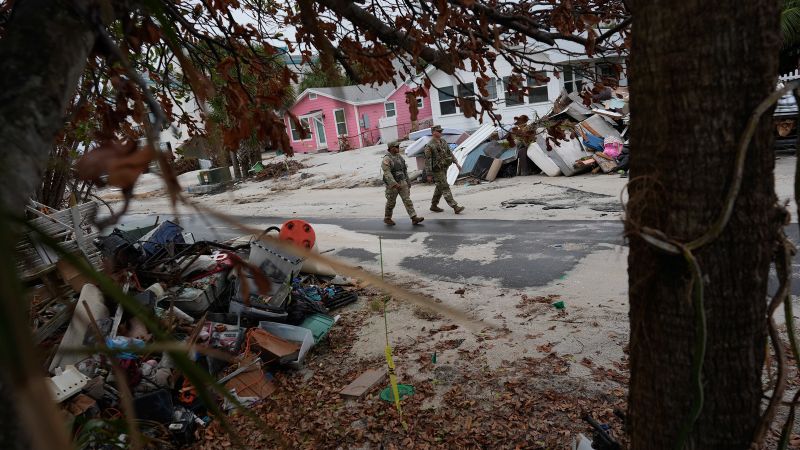The United States has been impacted by two catastrophic hurricanes in recent weeks, highlighting the threat of rapid climate change as a more substantial risk to American lives than traditional adversaries such as terrorists and authoritarian states. Experts have noted that hurricanes like Milton and Helene are becoming stronger due to rapidly warming oceans, leading to devastating consequences for communities in Florida and North Carolina. Even inland regions that were previously thought to be immune are now experiencing significant damage and loss of life.
The Pentagon has recognized climate change as a national security issue, elevating it on their list of threats facing the United States. Key Navy bases in low-lying areas like Norfolk and Virginia Beach are at risk due to rising waters caused by climate change, prompting efforts to mitigate its impact. The issue is not limited to domestic concerns, as climate refugees are contributing to conflicts around the world, as seen in Sudan where a deadly war is currently taking place.
Historian Peter Roady’s book “The Contest Over National Security” highlights President Franklin Delano Roosevelt’s broader view of national security, which focused on securing the lives of all American citizens. This includes programs like Social Security, which aims to provide economic security to residents. However, the concept of national security shifted during the Cold War and competition with the Soviet Union to a more narrow focus on defending against external attacks, a sentiment that continued after the 9/11 attacks.
The Covid-19 pandemic, which has claimed around 1.2 million American lives, has also emphasized the need to broaden the definition of national security. The U.S. is currently unprepared for another pandemic, according to the COVID Crisis Group, highlighting the importance of proactive planning for future health crises. The recent hurricanes may prompt politicians to address the risks posed by climate change, such as implementing restrictions on new construction in flood zones.
The aftermath of Hurricane Milton should prompt Americans to reassess their safety from threats like climate change and pandemics. It is essential to engage in a meaningful discussion on what truly constitutes national security, beyond just defending against external attacks. By acknowledging the existential threats posed by climate change and pandemics, policymakers can begin to prioritize proactive measures to protect American lives and ensure the country’s long-term security and stability.


